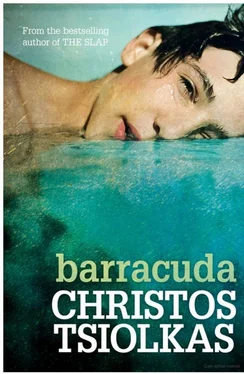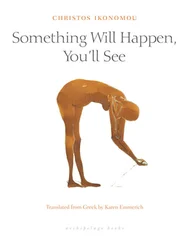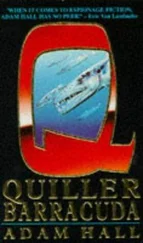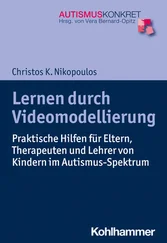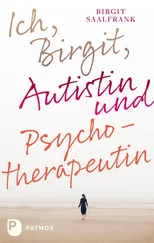t was Aussie Aussie Aussie, Oi Oi Oi and his ears couldn’t hear and his eyes couldn’t see and he had let go of Demet’s hand and had his hands cupped over his ears and was gulping for air, because all of his work and all of his training and his youth and his dreaming, his entire self; he should have been there. He opened his eyes and there, in close-up, was Kieren Perkins, waving to the fevered crowd, and as the camera began to pan across the Australian team, that group of golden boys and golden girls, he knew that he had to inhale, he had to open his lungs, and so he turned and was fighting for breath, pushing and shoving and kicking and elbowing until he had broken through the deafening mass, and was on the footpath, in the open air. There wasn’t a car in sight, there was no one on the street, not one other being to share his humiliation. He was alone and wretched in the world.
He was alone. He sucked in gulps of air.
He put out a hand, steadied himself on the wall. It sickened him how much hate he had inside him. All I am, thought Dan, is hate.
‘Danny, you OK, mate?’
Dan spun around, facing Luke. ‘How many times have I got to tell you, cunt? It’s Dan, not Danny. I’m Dan!’
Luke stepped back, his face drained of colour, aghast. He looked so miserable Dan wondered whether he was going to cry. Dan told himself that was how he could do it, how he could snatch the pity from their eyes, rip it away from them. Luke no longer looked like a man; he was again the callow schoolboy who would do anything for Danny, who worshipped Danny.
Except that he wasn’t that Danny. That Danny didn’t exist anymore.
Demet had also come out and she wrapped an arm around Dan, brought his head near to hers, so they were touching. He started to pull away, but relented. There were no words and she knew that.
But Luke, of course, the reader, the swot, the prefect and straight-A student, he had to use words, he had to talk. ‘Let’s all go back to Katie’s place, it’s just around the corner.’ He offered Dan a hesitant smile. ‘I promise, no telly.’
Dan shrugged, he didn’t care. Just as long as there was more alcohol. He wondered how he could have denied himself it for so long. It deadened thought and anaesthetised sensation, it gave you the most delectable numbness. He would drink till he passed out. On Katie’s floor, on the street, he didn’t care.
‘Katie got grog?’
He noticed the look exchanged between his two friends.
Demet squashed the butt of her cigarette on the tiled wall of the pub. ‘I’ll grab the others. There’s a bottle-o down the road.’
But Luke spoke. ‘I’m really glad you chose to be with us, mate.’ He placed a hand on Dan’s shoulder. ‘I was sure you’d be at Taylor’s party tonight. It means a lot to me that you’re here instead.’
At first Dan didn’t quite hear the words. Or he heard them but they didn’t quite make sense, were just more sounds in the night. Was Luke slurring, was he drunk? But the words began to shift into a pattern and the pattern began to form a sentence and the sentence stunned him. ‘What are you talking about?’
Once again, Luke looked like that frightened schoolboy.
Dan repeated, ‘What the fuck are you talking about?’
‘Sorry, Danny, Dan, I’m sorry, I thought you knew about Taylor’s big party tonight. I saw him at uni this week, he told me about it and I just assumed you would know.’
And Dan said, quietly, smiling now, ‘Yeah, of course, the party. Shit, yeah, I’d forgotten about that.’ He made sure to grin, to hold his body straight, to breathe in and breathe out as if everything were normal, as if night wasn’t day and the rending of the vault of the sky had not happened. Luke and Martin, at university together, in their world together, the world he didn’t belong to.
He smiled, he stood straight, he breathed normally. But inside, deep inside him, he understood what the songs meant, that the songs told the truth when they referred to a heart breaking.
He scooped Luke up in a wrestling tackle, held him from behind, whispered hoarsely in his ear, ‘Of course I was going to choose to be with you and Demet tonight. Of course I was.’ He let go of Luke. He thought, I could just tell him, I could just reach out to my friend and I could just say sorry.
He thought of Taylor and Luke at uni together, in that other world together.
Mustering all his will, all his strength, he faked a long, bored yawn. He forced cheer into his voice. ‘Mate, I’m pretty zonked, I think I’ll just go home. I really think it’s time I headed home.’
He ignored Luke’s protests, backed away, then turned and broke into a run. He could hear Luke calling after him, he knew that his friend had given chase. But Dan was running so hard that his feet were pounding the earth.
He ran. There were no cars, no taxis, no people on the streets. He ran like an automaton, without thinking, without being. The opening ceremony had been a hydrogen bomb; it had emptied the world of people. He was the only creature left alive. And he had no idea where he was, he couldn’t see a street sign.
Across the road an electrical goods store had three televisions on display, all on, all showing the opening ceremony.
Dan crossed the street, and looked through the iron bars at the biggest screen. The ceremony was still unfolding but there was no sound, and everything on the screen, the crowd and the athletes, everyone and everything, seemed puny. It was no longer the overwhelming spectacle it had seemed to be in the pub. It is nothing to be afraid of, he told himself. It was just sound and light and movement.
The stadium was in darkness and a woman in a wheelchair held the Olympic torch aloft. Dan knew that the old lady was Betty Cuthbert and the woman pushing her wheelchair was Raelene Boyle. ‘Cuthbert,’ whispered Dan, ‘you were at Melbourne and Rome; and Boyle, you won silver in Mexico City.’ He stretched out a finger, as if to touch the screen. ‘I know how you were cheated in Montreal,’ he continued whispering. ‘I think I can imagine what it cost you not to go to Moscow.’
He watched the play of shadow and light.
When Shane Gould was passed the torch Dan crossed his arms so tightly across his chest that his lungs contracted. The woman was jogging around the track, between two tiers of mutely cheering volunteers and officials, but she was staring ahead, her pace constant, the torch held high. Dan was mouthing silently, to the beat of her feet hitting the track: Munich, two hundred metre individual medley, gold; two hundred metre freestyle, gold; four hundred metre freestyle, gold; eight hundred metre freestyle, silver; one hundred metre freestyle, bronze. He watched Shane Gould hand the torch to another athlete, and for a moment he didn’t know who it was. Then he recalled the face, Debbie Flintoff-King, the athlete who won the four hundred metre hurdles in Seoul, the 1988 Olympics, the first Olympics he remembered seeing as a kid.
‘Cath-ee, Cath-ee!’
Dan jumped back from the shop window, startled by the sudden return of sound. But it wasn’t coming from the televisions. He looked up; the light from a screen flicked silver and grey and white on the walls and windows of an apartment above the shop. She began her proud jog up an illuminated staircase of brilliant white, smoke wreathing and spilling like water down the pearl steps ‘ Cath-ee! Cath-ee! ’ and he was sure now that it was not only from the apartment above that he could hear the chant; he thought it was an echo of the madness of an entire country, the whole of the world. ‘Go, Cathy,’ Dan called softly through the bars. ‘Go, Cathy. You’re not one of those golden girls.’
A shudder racked Dan’s body.
Читать дальше
